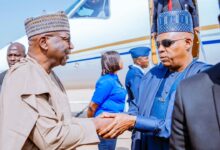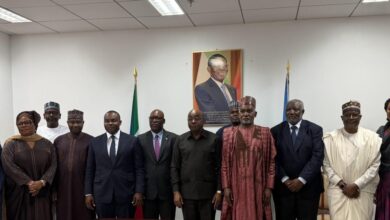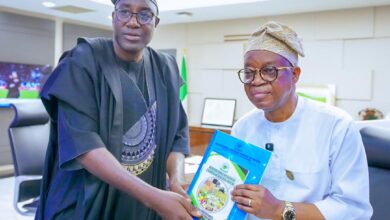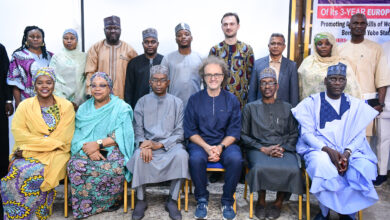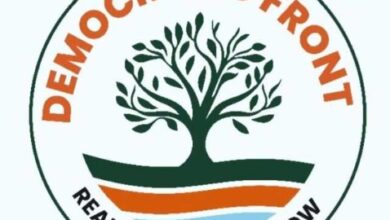Tinubu Calls For Collaboration To Achieve Global Food Security, Others

By Sunday Etuka, Abuja
President Bola Tinubu has called for collaboration and inclusiveness to achieving global food security, and addressing other world challenges.
Tinubu spoke during a high-level panel session at the World Economic Forum (WEF) Special Meeting on Global Collaboration, Growth and Energy for Development in Riyadh, Saudi Arabia, on Sunday.
In a statement by the Special Adviser to the President on Media and Publicity, Chief Ajuri Ngelale, President Tinubu said, “collaboration and inclusiveness”, especially with regard to Africa, are elemental to building a future of hope, peace, and progress for all.
He said, capital mobilization, which is needed to spur economic growth and associated advancements in Africa, cannot be overlooked any longer.
The President posited that the continent is richly endowed but that the diversity of its resources must reflect in its wherewithal and economic realities.
“The capital formation that is necessary to drive the economy, agriculture, ensure food security, innovation, and technological advancement must be an inclusive programme of the entire world. No one should be left behind.
“I am glad the world is recognizing the need for cooperation, and that with the type of population growth that Africa is experiencing; the diversity of its resources must be married with economic opportunity. We must collaborate to achieve that,” President Tinubu said.
The President called on global leaders to pay attention to the developments in the Sahel, emphasizing the need for a studied understanding of the vectors of the current situation, while suggesting collaboration in the pursuit of enduring solutions.
“We are encouraging the entire world to pay attention to the Sahel and the other countries around us. As the Chairman of ECOWAS Authority of Heads of State and Government, I have wielded the big influence of Nigeria to discourage all unconstitutional change of government. Equally, we have eased the sanctions. We need to trade with one another; not fight each other. It is very necessary and compulsory for us to engender growth, stability, and economic prosperity for our people in West Africa.

“The rest of the world needs to look at the fundamentals of the problem; not just geopolitically, but at the root. Has the world paid attention to the poverty level in the Sahel and the rest of ECOWAS? Have they facilitated the infusion of capital and paid adequate attention to ensuring the exploitation of resources and the creation of opportunities presented by the mineral resources available?
“Are we going to play a big-brother role in a talkshop without taking necessary action? We just have to be involved in the promotion and prosperity of that region in order to see peace, stability, and economic growth,” President Tinubu said.
Detailing the steps taken to set Nigeria’s economy on the path of expeditious recovery, the President said, he had to take tough but essential decisions like removing fuel subsidy – with its attendant perils – and managing the nation’s currency, effectively removing corruption-laden arbitrage.
In her remarks, Managing Director of the International Monetary Fund (IMF), Kristalina Georgieva commended President Tinubu for offering insights on how to execute strategic economic reforms.
“President Tinubu has emphasized the right things about what world leaders must consider primary in the execution of strategic economic reform.
He said there is a need to ensure that reforms are accompanied by a human touch. The needs of people must be identified and catered to as governments implement tough but necessary reforms,” the IMF Managing Director said.
During the session, the President of Rwanda, Paul Kagame, who was also on the high-level panel, said: “I am happy that the Nigerian President spoke on the need for inclusive economic growth. Africa is the stage for an expanding middle class. As the growth of the middle class in developed economies stagnate, Africa’s middle class is growing. It is our human resources and not natural resources that make our continent strategic and central to the global community moving forward.”


